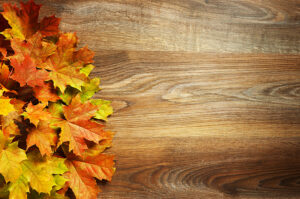
Parrys guide to vinyl thickness and wear
Getting new flooring is an incredibly exciting part of any building or renovation project. The colours, textures and type of flooring will typically set the tone of your entire living space, so choosing the right product is vital!
When it comes to vinyl flooring, it’s important to choose not only the right look for your home but the right type of product. You want flooring that will stand the test of time. If you’ve got kids or pets, the wrong flooring product can become a costly mistake to remedy.
Here are some handy tips you can follow that will ensure you pick the perfect vinyl flooring type for your home.
First, let’s learn about vinyl flooring types
Vinyl sheets: are made up of multiple layers, with vinyl resting on a backing sheet of fiberglass and coated with some protected layers of polyurethane to make it even more resilient. Sheets come in a beautiful variety of natural wood, granite and tile designs, and have a cushioned backing for your family’s comfort. If damaged, the damaged section can be cut out and replaced, but typically it’s harder to match up the flooring pattern (so most choose to replace the whole sheet).
Vinyl sheets are usually 2.5-3mm thick.
Vinyl planks: feature the vinyl layer attached to a dense underlayer of fiberglass. Unlike vinyl sheets, this product is thicker and rigid, and feels firmer underfoot. Vinyl planks come in spectacular re-created timber textures patterns, mimicking the look of hardwood floors.
Vinyl planks come in different thicknesses, including 2mm or 3mm.
Luxury vinyl: Luxury vinyl planks are made up of multiple layers pressed together to create a very hard-wearing and natural-looking finished product. These planks usually have a larger wear layer and are super tough, making them ideal for high-foot traffic environments.
Luxury vinyl planks come in a choice of 4.5mm and 5mm thickness and have improved acoustics over standard vinyl planks.
All of Parry’s vinyl products are scuff, scratch, stain and water resistant.
Why thicker isn’t always better
The thickness of a flooring product does not make it more durable and long-lasting in your home. When looking at vinyl flooring, the thickness of the product actually refers to the vinyl core and multiple-layers that make up the flooring type.
If you’re looking to have as much scuff, scratch and damage resistance possible in your selection, the thing you need to be mindful of is the wear layer. This layer is the second clear vinyl layer in the product, covering the photographic (or print) layer. The thicker the wear layer in your flooring, the more protection your print layer has against scratches, scuffs, and dents.
For most homes, look for vinyl planks with a wear layer of at least 0.25mm. If you have an active family or enthusiastic pets at home, consider buying vinyl planks with a wear layer of 0.30mm.
If you’re unsure which vinyl product to choose, the team at Parry’s is here to help you make the right decision so you can get back to your build or renovation project.
Does the subfloor affect vinyl thickness?
It depends. The vinyl thickness itself within each product won’t change, but the subfloor will impact on how easily your flooring can be installed and what product type you should choose.
The subfloor must be thoroughly cleaned prior to the arrival of your new floor, with any uneven sections addressed and absolutely no debris remaining. If a subfloor has bumps, dirt or sunken areas, it will change the appearance of your vinyl flooring over time.
Concrete surfaces are easier to clean and keep smooth – for this reason, a thinner vinyl product is fine to install. Wooden and tile subfloors may require thicker vinyl for better support and stability throughout the life of your vinyl flooring.
But remember – just because a vinyl product is thicker doesn’t mean it will be more durable. This is what the wear layer is for.
What is the best way to protect vinyl flooring?
To keep your floors looking their best for as long as possible, you should always use felt pads on furniture to stop any unnecessary scratches or scuff marks. Regular sweeping and vacuuming (check out our complete guide to vinyl flooring maintenance), as well as the use of door mats (don’t forget to clean those too!) will ensure your floors stay in fantastic condition.
Read More Blogs
Article Topics
Recent Articles
-
![Parrys Carpets: Rental property flooring: the best choices]()
Rental property flooring: the best choices
Tax time is on the horizon! For those with rental properties, it makes sense at...
Keep Reading -
![Parrys Carpets: Autumn Trends, Colours and Flooring for the Season]()
Autumn Trends, Colours and Flooring for the Season
When autumn arrives and temperatures begin to drop, many of us start thinking about how...
Keep Reading -
![Parrys Carpets: Senior Safe Flooring]()
Senior Safe Flooring
Losing mobility as we age can have many knock-on effects, including impacting the type of...
Keep Reading



